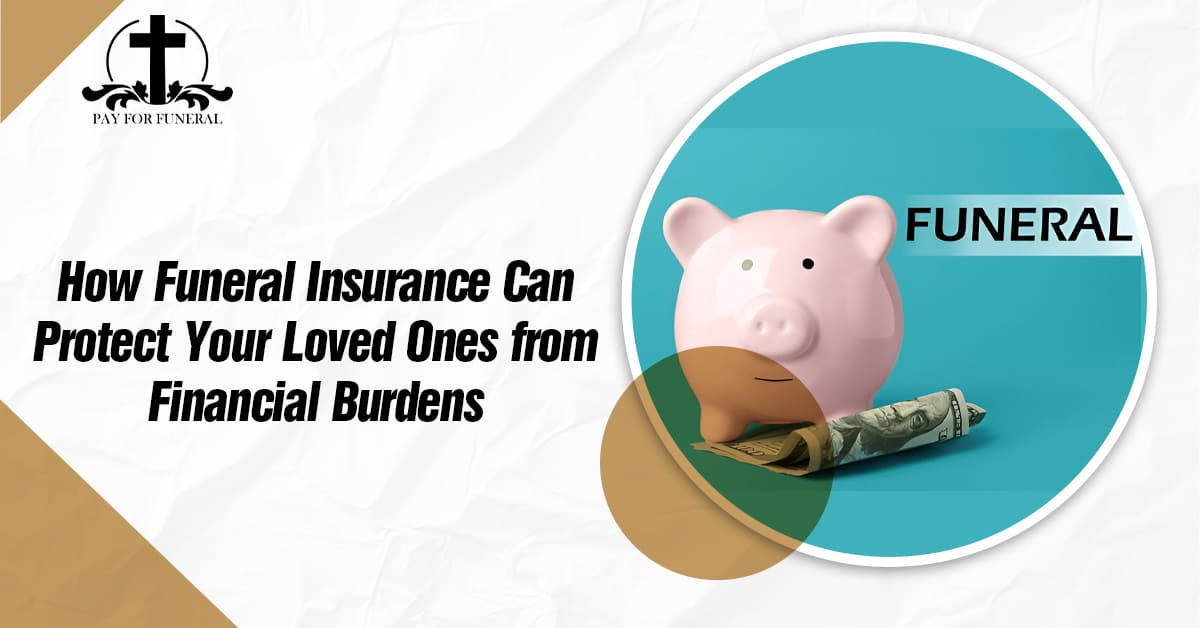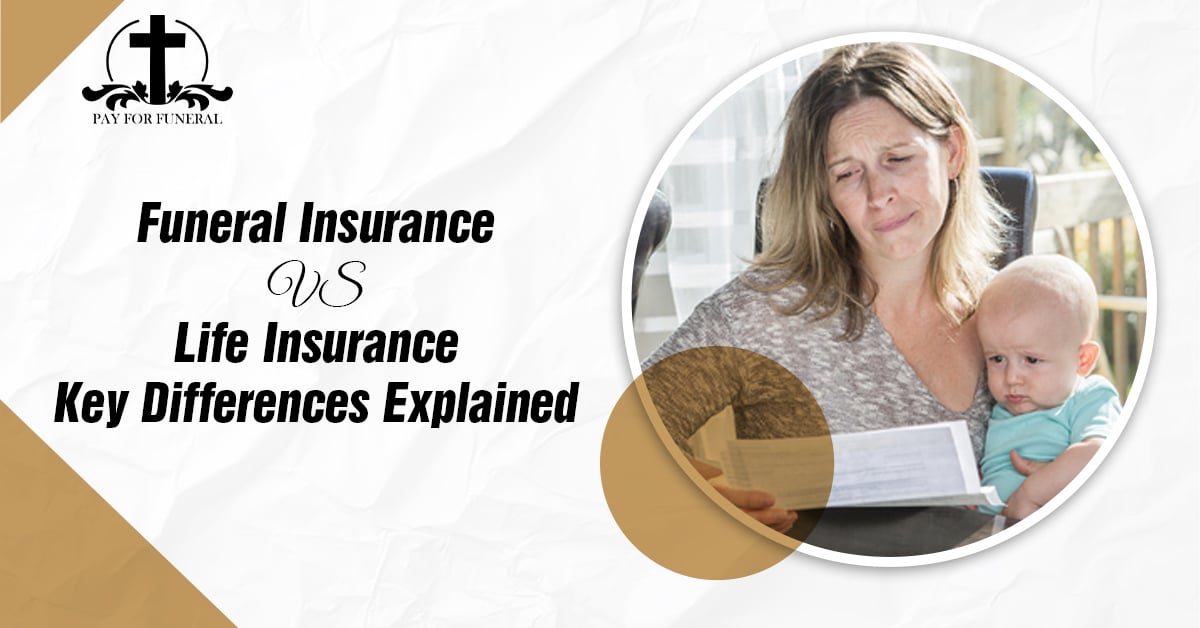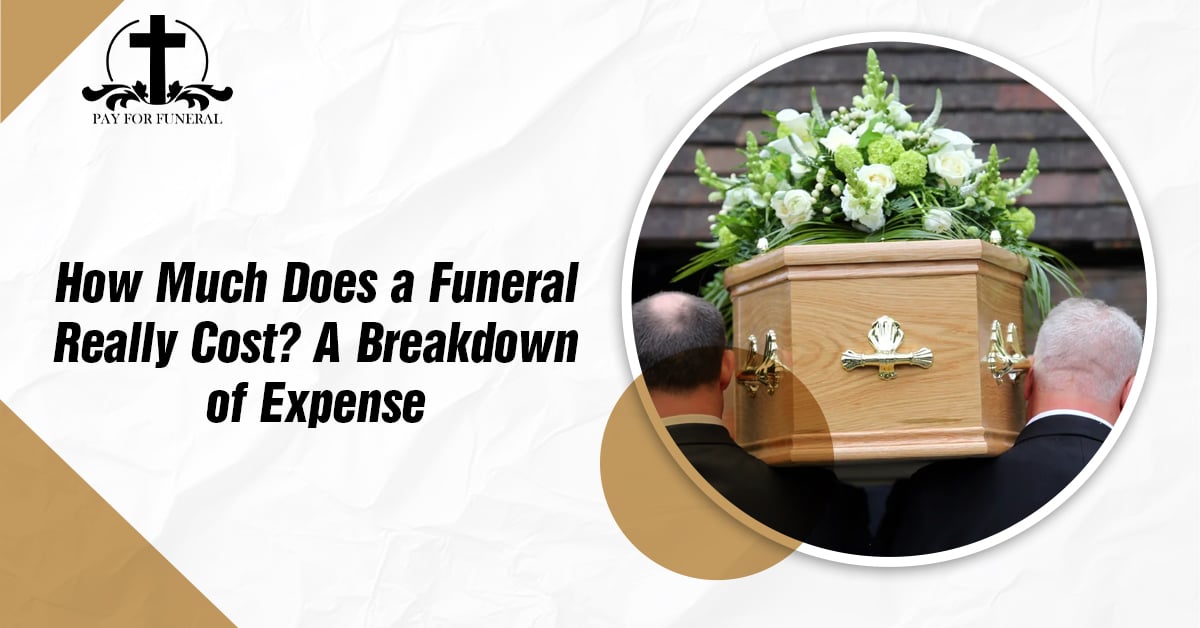Planning for end-of-life expenses is an essential part of financial planning, ensuring your loved ones aren’t burdened with costs after you pass. Two common options for covering funeral expenses are burial insurance and prepaid funeral plans. While both help cover final expenses, they work in different ways. Understanding their differences will help you decide which is best for your needs. What is Burial Insurance? Burial insurance, also known as final expense insurance, is a type of life insurance designed to cover funeral and burial costs. It provides a lump sum payout to your beneficiaries upon your passing, which they can use for any expenses related to your funeral, medical bills, or other outstanding debts. Unlike traditional life insurance, burial insurance offers smaller coverage amounts, usually between $5,000 and $50,000, making it an affordable choice for seniors and those looking for basic end-of-life expense coverage. The application process is typically straightforward, with many policies not requiring a medical exam, making it accessible even for individuals with health concerns. Key Features of Burial Insurance: What is a Prepaid Funeral Plan? A prepaid funeral plan is an arrangement with a funeral home where you pay for funeral services in advance. This can be done in a lump sum or through installment payments. One of the key advantages of a prepaid funeral plan is that it locks in today’s prices for future services, protecting you from inflation and rising funeral costs. With a prepaid funeral plan, you can make detailed funeral arrangements in advance, ensuring that your service is carried out according to your wishes. However, one major downside is that the plan is tied to a specific funeral home, meaning if you move or change preferences, transferring the plan may not always be easy. Key Features of Prepaid Funeral Plans: Comparing Burial Insurance and Prepaid Funeral Plans While both options serve the purpose of covering funeral expenses, they have distinct differences. Here’s a breakdown of how they compare: Feature Burial Insurance Prepaid Funeral Plan Payment Structure Monthly premiums Lump sum or installment payments Coverage Flexibility Funds can be used for any purpose Covers only funeral-related services Price Protection Subject to inflation Locked-in costs for specific services Medical Exam Required? Usually not required Not applicable Portability Policy follows you Limited to a specific funeral home Beneficiaries Pays to your loved ones Pays directly to the funeral home Pros and Cons of Burial Insurance vs. Prepaid Funeral Plans Pros of Burial Insurance: ✅ Flexible Use of Funds – The payout is given to your loved ones, allowing them to use it as needed. ✅ Portable – Your policy is not tied to one specific funeral provider, giving your family freedom to choose the arrangements. ✅ Easier to Qualify – No strict health requirements make it an accessible option for many. ✅ Covers More Than Just Funeral Costs – Can also be used for medical bills, outstanding debts, or any personal expenses. Cons of Burial Insurance: ❌ Premiums Can Add Up Over Time – If you live for many years, you may end up paying more in premiums than the actual funeral cost. ❌ Subject to Inflation – The payout may not fully cover rising funeral costs if inflation outpaces the policy’s value. Pros of Prepaid Funeral Plans: ✅ Locks in Costs – Protects against inflation by securing today’s prices. ✅ Pre-Arranged Services – Ensures that all your wishes are followed, providing peace of mind. ✅ Reduces Family Burden – Your loved ones won’t have to worry about making arrangements or covering costs. Cons of Prepaid Funeral Plans: ❌ Limited Flexibility – Funds are allocated to a specific funeral home, and changing plans can be difficult. ❌ Funds Not Available for Other Expenses – Unlike burial insurance, it only covers funeral-related services. ❌ Potential for Business Closure – If the funeral home closes or goes out of business, there may be risks regarding the security of your funds. Who Should Choose Burial Insurance? Burial insurance is a great option if you: Who Should Choose a Prepaid Funeral Plan? A prepaid funeral plan is better if you: Can You Have Both Burial Insurance and a Prepaid Funeral Plan? Yes! Some individuals opt for both burial insurance and a prepaid funeral plan. This combination ensures that funeral expenses are covered while also providing additional financial support to loved ones. The prepaid funeral plan guarantees that your arrangements are handled as you wish, while burial insurance offers extra funds that can be used for any remaining expenses, debts, or financial support for your family. FAQs Can I cancel a prepaid funeral plan? Yes, but the cancellation terms depend on the funeral home and contract. Some plans allow refunds, while others may deduct fees or be non-refundable. Does burial insurance cover only funeral costs? No, the payout can be used for any purpose, including medical bills, outstanding debts, or other final expenses, depending on the beneficiary’s needs. What happens if I move after purchasing a prepaid funeral plan? Since prepaid plans are tied to specific funeral homes, transferring them can be difficult. Some providers allow transfers, but additional costs may apply. Is burial insurance more expensive than prepaid funeral plans? It depends. Burial insurance involves ongoing premiums, which may add up over time. A prepaid funeral plan is a one-time or installment payment but is limited to specific services. Can my family receive money from a prepaid funeral plan? No, the funds go directly to the funeral home to cover the agreed-upon services. If you want your family to have financial flexibility, burial insurance is the better option. Conclusion Both burial insurance and prepaid funeral plans serve an important purpose in end-of-life financial planning. If you want flexibility and financial security for your family, burial insurance is a great option. However, if you prefer to lock in costs and plan every detail in advance, a prepaid funeral plan may be a better fit. Before making a decision, assess your financial situation, consider your long-term needs, and consult with a
How Funeral Insurance Can Protect Your Loved Ones from Financial Burdens
Your family needs protection through future decision making since unexpected financial costs can present a major challenge. The costs of a funeral commonly amount to thousands of dollars so when you have no funeral planning your family members might face difficulties paying for them. The key role in this situation is held by funeral insurance which provides crucial support. This text explains funeral insurance as a vital financial protection that will be explored along with its operational mechanics for providing security to your loved ones’ future. This article provides details on selecting the ideal funeral insurance policy and both advantages and expenses involved with this coverage. What Is Funeral Insurance? The insurance type funeral insurance helps families manage burial and cremation expenses through its final expense and burial insurance structure. The main purpose of funeral insurance stands apart from standard life insurance because it targets the financial needs of burial and related funeral expenses. How Does Funeral Insurance Work? A funeral insurance plan operates through the same mechanism as a standard life insurance policy. Insurance providers receive regular payments through monthly or annual premiums before distributing a death benefit payout to the chosen beneficiaries of a policyholder. Recipients of funeral insurance funds may apply the money to pay for funeral costs or medical debts and surviving financial obligations. The Rising Costs of Funerals The costs of funerals differ according to specific location needs together with selected funeral services and individual choice preferences. NFDA data indicates that the typical costs of funeral services fall between $7,000 and $12,000. Standard funeral costs include the following categories: The cost of funeral arrangements would fall directly on your family if you do not have funeral insurance thereby creating potential difficulties related to finances. Benefits of Funeral Insurance 1. Protects Your Family from Financial Burden One of the main reasons people invest in funeral insurance is to relieve their family from the financial stress of paying for funeral services. Losing a loved one is already an emotional experience—having funeral costs covered ensures they can focus on grieving and honoring your memory rather than worrying about expenses. 2. Guaranteed Payout for Beneficiaries Unlike traditional life insurance policies that may take weeks or months to process, funeral insurance provides a quick payout, ensuring immediate financial support to cover burial and funeral expenses. 3. Affordable Premiums Funeral insurance policies typically offer affordable and fixed premiums, making them a cost-effective option for individuals who want to prepare for end-of-life expenses without breaking the bank. 4. No Medical Exam Required Many funeral insurance providers offer guaranteed acceptance policies, meaning you don’t have to undergo a medical exam to qualify. This makes it a great option for seniors or individuals with pre-existing health conditions. 5. Flexible Use of Funds Beneficiaries can use the payout however they see fit, whether to cover funeral costs, outstanding debts, or other expenses left behind. 6. Peace of Mind for You and Your Family Knowing that your final expenses are covered allows you and your loved ones to have peace of mind. It ensures that they won’t have to make difficult financial decisions while grieving. How Much Does Funeral Insurance Cost? The cost of funeral insurance depends on several factors, including age, health, and coverage amount. Here’s a general breakdown: Age Group Average Monthly Premium (for $10,000 Coverage) 50 – 60 $25 – $50 61 – 70 $40 – $75 71 – 80 $60 – $120 81+ $100 – $200 Premiums tend to be lower if you purchase a policy at a younger age, so it’s beneficial to plan ahead. How to Choose the Right Funeral Insurance Policy 1. Determine the Coverage Amount Consider funeral costs in your area and decide how much coverage you need. Some policies offer coverage ranging from $5,000 to $25,000. 2. Compare Different Providers Not all funeral insurance policies are the same. Compare multiple providers based on: 3. Understand Policy Terms and Conditions Make sure you understand the policy’s waiting period, exclusions, and payout process. Some policies may have a two-year waiting period, meaning beneficiaries won’t receive the full benefit if the policyholder dies within that time. 4. Check for Additional Benefits Some funeral insurance policies come with extra benefits such as: 5. Consult an Insurance Agent An insurance expert can help you navigate different policies and find the best option tailored to your specific needs and budget. Funeral Insurance vs. Life Insurance: What’s the Difference? While both funeral insurance and life insurance provide financial protection, they serve different purposes: Feature Funeral Insurance Life Insurance Purpose Covers funeral expenses Provides financial security to family Coverage Amount $5,000 – $25,000 $50,000 – $1,000,000+ Medical Exam Usually not required Often required for higher coverage Payout Time Quick (within days) Can take weeks or months Affordability More affordable Higher premiums for larger coverage Is Funeral Insurance Right for You? Funeral insurance is a smart choice for individuals who: If you already have life insurance or sufficient savings, you may not need funeral insurance. However, for many seniors and individuals with limited savings, it can provide valuable peace of mind. Frequently Asked Questions (FAQs) 1. Is funeral insurance worth it? Yes, funeral insurance is worth it if you want to ensure your loved ones are not burdened with funeral costs. It provides quick payouts and financial security. 2. Can I get funeral insurance if I have a pre-existing condition? Yes, many funeral insurance providers offer policies with no medical exam required, making it easier for those with pre-existing conditions to qualify. 3. What happens if I stop paying my funeral insurance premiums? If you stop paying your premiums, your policy may lapse, meaning your beneficiaries will not receive any payout. Some policies offer a grace period to reinstate coverage. 4. Can funeral insurance cover other expenses besides funeral costs? Yes, the payout can be used for any expenses, including outstanding medical bills, legal fees, and other debts. 5. How do I choose the best funeral insurance provider? Compare multiple providers based on coverage options,
Who Needs Funeral Insurance? Signs It’s a Smart Investment
Introduction When someone dies it creates emotional distress while adding financial pressure to the situation. The conventional funeral expenses keep increasing so families face serious difficulties when trying to pay them. The solution comes through funeral insurance coverage. The insurance provides funding that assists families by eliminating financial stress during deadly situations. Funeral insurance requires evaluation to determine if it applies to all individuals. This article evaluates who requires funeral insurance through a review of its financial benefits together with alternative security options. The process of planning funeral expenses beforehand will protect your family from emotional and financial burdens. The peace of mind which funeral insurance brings to families ensures that loved ones will not face burdensome financial choices when grieving a loss. It is essential for people to understand the advantages of funeral insurance before deciding if it suits their needs. The passing ritual serves to remember someone’s life journey through the act of farewell. The process of planning a funeral causes emotional distress to families during their time of grieving the loss of someone dear to them. Funeral insurance provides financial backup which enables loved ones to say goodbye appropriately by eliminating the need to worry about immediate expenses. What Is Funeral Insurance? Insurance policies for funeral expenses offer a single payment to beneficiaries during their death with the purpose of covering funeral costs. The death benefit from funeral insurance policies exists to pay for funeral expenses which include caskets together with services and interment or cremation costs and additional funeral fees. Your main objective when getting this coverage is to prevent your family from making hasty decisions about funeral costs at the time of your passing. The main purpose of funeral insurance differs from traditional life insurance because it provides funds only for final expenses. Some key benefits include: People who lack savings and life insurance benefits can use funeral insurance to protect their family members from cost burdens at the end of their lives. The policy serves as a backup plan to help families avoid money problems when they need to arrange a proper funeral. For additional insights into funeral insurance plans, check out Pay for Funerals. Who Should Consider Funeral Insurance? Not everyone needs funeral insurance, but certain groups of people may benefit more than others: Seniors and Retirees When people reach senior years they begin to consider what will happen after their life ends. The insurance protects loved ones from financial hardships after a person passes away. Having a fixed income means seniors need funeral insurance as their limited savings cannot pay for these expenses. When families lack proper funeral preparation they need to take on debt or borrow money which makes their grief experience more difficult. People with Limited Savings Having funeral insurance proves beneficial when you need funds to pay for funeral expenses because you have not accumulated enough savings. The high expenses associated with funeral services reach thousands of dollars so proper financial preparation becomes essential. A sudden death of someone leads to financial problems for families so funeral insurance becomes crucial for protecting against these challenges. Those Without Life Insurance A life insurance policy without coverage for final expenses can be substituted by funeral insurance to cover funeral costs. Life insurance policies need weeks or months for processing but funeral insurance offers accelerated payment options. The fast payout system enables families to carry out funeral preparations without waiting periods. Individuals with Specific Funeral Wishes The purchasing of funeral insurance allows you to specify your religious and cultural funeral choices while shielding your family from financial responsibility. The expenses of funeral arrangements can be handled through funeral insurance regardless of the burial or cremation type or specific service choice. People choose to pre-plan their funeral arrangements ahead of time to guarantee every service element meets their specific values as well as traditional customs. Signs That Funeral Insurance Is a Smart Investment Wondering if funeral insurance is the right choice for you? Here are some signs that it might be a good investment: Funeral insurance serves as both financial support and emotional relief according to these factors. By ensuring everything is arranged your family members can celebrate your life with peace of mind because they do not need to worry about costs. Pros and Cons of Funeral Insurance Before deciding, it’s important to weigh the advantages and disadvantages. Pros: ✅ Affordable premiums (especially if you enroll at a younger age)✅ Eases financial stress on your family✅ Ensures your final wishes are met✅ Funds are available quickly after death Cons: ❌ Costs may exceed benefits if you live a long time❌ Some policies have exclusions or waiting periods❌ Alternative options like savings or pre-paid funeral plans may be better for some people The combination of long-term savings and funeral planning through funeral homes might prove less expensive than funeral insurance policies. The main advantage of funeral insurance lies in its fixed coverage and its reduced initial payment requirement. How to Choose the Right Funeral Insurance Policy Not all funeral insurance policies are the same. It’s essential to compare your options carefully before making a decision. Here are some key factors to consider: By taking the time to research these factors, you can find a policy that best meets your needs and gives you peace of mind. Alternative Ways to Cover Funeral Expenses If funeral insurance doesn’t seem right for you, there are other methods to ensure that funeral costs are covered without burdening your family: Savings and Emergency Funds One effective alternative is to set aside money in a dedicated savings account specifically for funeral expenses. This approach allows you to accumulate funds over time, so they are readily available when needed. It can also serve as an emergency fund for other unexpected expenses. Life Insurance Policies Many life insurance policies include options to designate funds for funeral expenses. Check your current policy to see if this benefit is available. If not, you might consider purchasing a policy that specifically covers final
Funeral Insurance vs. Life Insurance: Key Differences Explained
Introduction People frequently evaluate insurance purchases before their future to secure their family members’ financial stability. The costs of funeral expenses can be covered through two insurance options: funeral insurance and life insurance. The protection offered by both insurance types differs because they function for different objectives. The knowledge about these distinctions will help you select the right policy that suits both your family and yourself. This guide explains both funeral insurance and life insurance and their operations and advantages and provides methods to select an appropriate policy based on personal needs. What Is Funeral Insurance? Final expense insurance which operates under the names of burial insurance and funeral insurance serves to pay for funeral and burial expenses. The policy enables your family to avoid paying funeral costs after your passing. How Does Funeral Insurance Work? Benefits of Funeral Insurance What Is Life Insurance? The financial protection plan known as life insurance gives your beneficiaries a single payment when you pass away. The insurance plan functions as an income replacement tool which also helps beneficiaries eliminate debts and maintain financial stability. Types of Life Insurance There are different types of life insurance, including: 1. Term Life Insurance 2. Whole Life Insurance 3. Universal Life Insurance Benefits of Life Insurance Key Differences Between Funeral Insurance and Life Insurance Feature Funeral Insurance Life Insurance Purpose Covers funeral & burial costs Provides financial support for dependents Coverage Amount $5,000 – $50,000 $50,000 – $1,000,000+ Premium Costs Lower Higher (depends on policy type) Medical Exam Usually not required Often required for higher coverage Payout Time Quick payout within days May take weeks to process Cash Value No Some policies build cash value Policy Length Lifetime coverage Term or lifetime coverage options Which Insurance Policy Is Right for You? Your needs and financial state will determine whether you should choose funeral insurance or life insurance. The following elements should be taken into account for your decision Choose Funeral Insurance If: Choose Life Insurance If: Can You Have Both Policies? Yes! People usually acquire life insurance alongside funeral insurance to fulfill separate coverage requirements. Two insurance policies provide you with complete coverage to protect your family members from financial strain. Common Questions About Funeral and Life Insurance 1. Can I use life insurance to pay for funeral expenses? Yes, but life insurance payouts can take weeks, while funeral costs need to be covered immediately. This is why many people prefer funeral insurance. 2. Is funeral insurance worth it? If you do not have enough savings to cover funeral expenses, funeral insurance is a great option to ensure your family isn’t left with financial stress. 3. What happens if I stop paying premiums? If you stop paying funeral insurance premiums, your policy may lapse. With life insurance, some policies have a cash value that can be used to cover missed payments. 4. Can I prepay for my funeral instead of getting insurance? Yes, you can set up a prepaid funeral plan with a funeral home, but it lacks flexibility. Insurance provides cash to your beneficiaries, who can use it for various needs. 5. What is the best age to get funeral or life insurance? 6. Are funeral insurance premiums fixed? Yes, most funeral insurance plans have fixed premiums that do not increase over time. 7. How do I apply for funeral or life insurance? You can apply online, through an agent, or with an insurance provider. Compare different policies to find the best fit. Final Thoughts Funeral insurance together with life insurance offers protection yet they operate for separate objectives. Final expenses are covered through funeral insurance but life insurance delivers additional coverage that benefits your family. The selection between these policies depends on your financial requirements and dependent situation together with your long-term objectives. Get complete protection by combining both policies. Your family along with yourself will have peace of mind when you plan your arrangements in advance. Contact an insurance professional to determine which policy best meets your specific needs when you are unsure about your choices. Need Help Choosing the Right Policy? You should research different funeral and life insurance providers and policies to select a plan that matches your requirements. Planning today will both safeguard your family members and lighten their economic challenges when hard times strike.
How Much Does a Funeral Really Cost? A Breakdown of Expenses
Introduction Death of a loved one creates a difficult situation while arranging a funeral becomes both emotionally draining and financially demanding. Most individuals realize the funeral costs only when they need to plan for a funeral. The fast accumulation of funeral costs becomes clear when people understand this financial aspect which helps them prepare for these expenses. The following text provides detailed information about the costs involved in funeral services including burial expenses and cremation fees as well as additional charges that users need to consider. The article will examine both the external elements which affect funeral expense levels as well as practical methods to control these costs. This article will provide you with complete knowledge about funeral expenses and their planning methods to reduce financial burden on your loved ones. The Average Cost of a Funeral The price of a funeral depends on where it takes place along with the selected type of service and individual preferences. NFDA reports that the average price for a traditional funeral with burial service ranges from $7,000 to $12,000 whereas cremation funeral services typically cost between $6,000 and $7,000. The funeral expenses become substantially more expensive when families need to add cemetery fees together with headstones and reception costs. Regional Differences in Funeral Costs Funeral costs can vary greatly depending on the region. For example: Several factors can affect funeral costs, including: A Breakdown of Funeral Expenses To better understand funeral costs, let’s break them down into essential categories: 1. Basic Service Fees Most funeral homes charge a basic service fee that covers: Estimated cost: $2,000 – $3,000 2. Transportation Costs The movement of a deceased person from death location to the funeral home and burial site creates expenses. This includes: Estimated cost: $300 – $1,000 3. Embalming and Body Preparation The process of body preparation through embalming becomes necessary when you select either traditional burial or open-casket viewing. Costs include: Estimated cost: $500 – $1,500 4. Casket or Urn Costs Funeral costs contain a large portion for choosing between a coffin or an urn. Casket and urn prices depend on their materials and designs. 5. Funeral Service and Viewing If you choose to hold a funeral service, additional costs may include: Estimated cost: $500 – $2,500 6. Burial Costs If opting for burial, additional expenses include: 7. Cremation Costs For those choosing cremation, the costs involved include: 8. Additional Costs There are also optional expenses that can add to the total funeral cost, such as: Alternative Funeral Options to Save Costs If the cost of a traditional funeral is too high, consider alternative options: 1. Green Burials 2. Body Donation 3. Home Funerals 4. Virtual Funerals Ways to Reduce Funeral Costs You can lower funeral expenses without losing any part of your tribute to your departed loved one. 1. Pre-Planning and Pre-Paying 2. Compare Funeral Homes 3. Consider Direct Cremation or Burial 4. Choose an Affordable Casket or Urn Conclusion The expenses linked to funerals tend to be substantial yet knowing these costs enables you to plan ahead and select your options wisely. Your knowledge about burial and cremation choices will enable you to make decisions that decrease the financial burden on your family after your passing. Your knowledge of funeral expenses will help you select optimal choices for both yourself and your family members in times of grief.
What Is Funeral Insurance & How Does It Work?
Introduction The expense of funeral arrangements remains a crucial issue that most people fail to plan for in their future. The expenses of funeral arrangements tend to be high which makes it essential to avoid burdening your family with additional financial strain after death. Funeral insurance provides the solution to this problem. Funeral insurance functions as a financing system which pays for funeral arrangements and their connected expenses. This guide will present an explanation of funeral insurance with details about its operation and advantages followed by descriptions of available policy types and selection factors along with solutions to frequent questions. What Is Funeral Insurance? Funeral insurance operates under three names: burial insurance and final expense insurance and provides payment when someone dies to cover funeral expenses as well as other death-related costs. The policy gives your beneficiaries a single payment that enables them to pay for funeral arrangements and cremation procedures as well as burial services and other funeral costs upon your death. The insurance serves its purpose best for people who prefer their family members to avoid future financial difficulties after death. The coverage allows family members to avoid debt from funeral costs during the time of death. The payout amount from funeral insurance ranges between $5,000 and $25,000 while its qualification process remains simpler than that of traditional life insurance policies. How Does Funeral Insurance Work? The operation of funeral insurance follows standard life insurance principles yet emphasizes paying funeral costs specifically. Here’s how it works: 1. Choose a Policy You choose a funeral insurance plan from available options which meets your financial requirements and desired coverage. People can choose between pre-need funeral insurance and final expense insurance among several available policy options. 2. Pay Premiums Active policy status depends on your regular premium payments made through monthly or yearly intervals. The premiums you pay to maintain your policy depend on your selected coverage level and your age along with your health condition. 3. Beneficiary Receives Payout Your chosen beneficiary obtains a single payment from the insurance provider after your death. The person who inherits your insurance payout can be any individual that you choose to be your beneficiary. 4. Use of Funds The death benefit payout from funeral insurance allows your designated beneficiary to handle expenses including funeral costs and medical bills and debt payments and additional costs as they choose. The insurance payout offers financial assistance which allows people to arrange funerals without experiencing unnecessary stress. The processing of funeral insurance payouts occurs swiftly which allows beneficiaries to cover funeral costs promptly. Why Do You Need Funeral Insurance? Life insurance proves insufficient to handle funeral expenses according to popular belief while funeral insurance stands as a superior alternative for multiple reasons. Benefits of Funeral Insurance 1. Financial Relief for Loved Ones Your family members will not face any financial strain from your funeral costs through funeral insurance. 2. Affordable Premiums The monthly premiums from most funeral insurance plans remain affordable enough for budgeting purposes. 3. Easy Approval Process Funeral insurance policies do not need medical examinations which enables easier approval particularly for elderly people or those with existing health problems. 4. Quick Payouts Funeral insurance benefits process rapidly which allows families to pay funeral costs immediately. 5. Flexible Coverage A life insurance policy allows beneficiaries to use the funds for burial expenses and cremation costs alongside medical payments and debt repayment. Types of Funeral Insurance People can select from various funeral insurance policy options. These are the most typical policies available: 1. Pre-Need Funeral Insurance 2. Final Expense Insurance 3. Guaranteed Issue Funeral Insurance 4. Simplified Issue Funeral Insurance How Much Does Funeral Insurance Cost? The cost of funeral insurance depends on several factors, including: The average cost of funeral insurance premiums falls between $20 to $100 per month based on the factors mentioned above. How to Choose the Right Funeral Insurance Policy Review the following points before choosing a funeral insurance policy: 1. Assess Your Needs 2. Compare Policies 3. Check the Fine Print 4. Choose a Reputable Provider Frequently Asked Questions 1. Is Funeral Insurance the Same as Life Insurance? No, funeral insurance is a smaller policy designed specifically to cover funeral expenses, while life insurance provides broader financial support to beneficiaries. 2. Can I Buy Funeral Insurance for My Parents? Yes, you can purchase a policy for your parents as long as you have their consent and provide their necessary information. 3. What Happens If I Stop Paying My Premiums? If you stop paying premiums, your policy may lapse, and your coverage will end. Some policies have a grace period or allow reinstatement. 4. Does Funeral Insurance Cover All Funeral Costs? It depends on the coverage amount. If your funeral costs exceed the policy payout, your family will need to cover the remaining expenses. 5. Is There an Age Limit for Funeral Insurance? Most insurers offer funeral insurance for individuals between 50 and 85 years old, though this can vary. Conclusion The financial instrument of funeral insurance protects family members from facing the heavy expenses of funerals after someone passes away. Funeral insurance gives your family a single payment that pays for death expenses so they need not worry about finances while mourning. The process of understanding funeral insurance policies combined with policy comparison and proper coverage selection allows you to gain peace of mind for both yourself and your family members. Obtain a funeral insurance policy now to create financial stability for your family during your passing.








